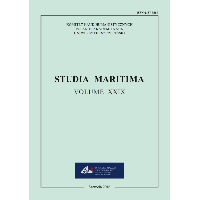Rola generała Kazimierza Sosnkowskiego w kształtowaniu stosunków polsko-francuskich w okresie II Rzeczypospolitej
The Role of General Kazimierz Sosnkowski in the Shaping of the Relations between Poland and France During the Second Republic
Author(s): Andrzej WojtaszakSubject(s): Diplomatic history, Military history, International relations/trade, Security and defense, Interwar Period (1920 - 1939)
Published by: Wydawnictwo Naukowe Uniwersytetu Szczecińskiego
Keywords: international relations; national security; diplomacy; Poland; France; a military alliance; 1919–1939;
Summary/Abstract: The article presents the relations between Poland and France in the period of 1918–1939, and a special attention is paid to the role of General Kazimierz Sosnkowski. The General belonged to a circle of people who supported the idea of cooperation with France regarding that country as the only potential ally of Poland, especially in case of a conflict with Germany. It is out of the question that at the beginning of the 1920s he was an executor of Józef Piłsudski’s political line. When the Locarno treaties had been signed in 1925, Poland faced a dilemma of creating a new foreign policy. At the end of Józef Piłsudski’s life the concept of equal distances was implemented; the concept, developed by Józef Beck, was crowned with signing two treaties, one with Germany and the other with the USSR. The development of the international situation, especially the attitude of Germany, had to provoke a reaction in Warsaw and Paris. After the death of the Marshal and the political change in Poland, the new military authorities headed by marshal Edward Śmigły-Rydz started new relations with France. An important role in creating those new relations was played by General Kazimierz Sosnkowski.
Journal: Studia Maritima
- Issue Year: 29/2016
- Issue No: 1
- Page Range: 181-201
- Page Count: 21
- Language: Polish

